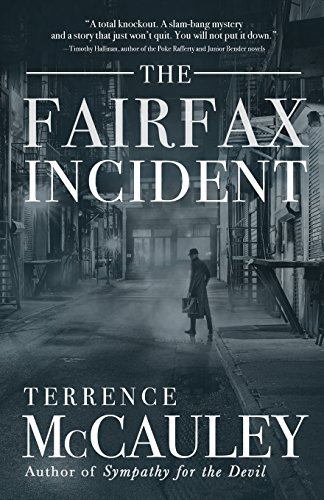The Fairfax Incident
Charlie Doherty, bumped off the New York City Police Department after his investigation of a girl’s death led to The Grand Central Massacre in Terrence McCauley’s 2013 Slow Burn, is a private detective whose clients are selected—and his services financially supported—by the prominent Harry Van Dorn.
Contacted by a wealthy widow to prove her husband did not commit suicide (despite clear evidence to the contrary), Doherty at first believes his job is to give the woman a satisfactory explanation of why, not how, Walter Fairfax ended his life with a gunshot in the mouth. He soon learns that Fairfax’s death as well as the last months of his life are linked not only to his mistress, an Austrian countess displaced from her country and wealth soon after the First World War, but also to tenets of Aryan philosophy.
The Fairfax Incident describes an unsettled Depression-era Manhattan, where motives and fealties are muddy: where an enemy protects a rival rather than accede to nationalistic pride, a benefactor is responsible for more than a dozen deaths, and a street-smart private detective must challenge his assumptions about the differences between white and black and gray.
A fast-paced thriller on the surface, the novel plumbs beliefs and attitudes that make us squirm. What is justified in furthering a higher cause, and who decides?










